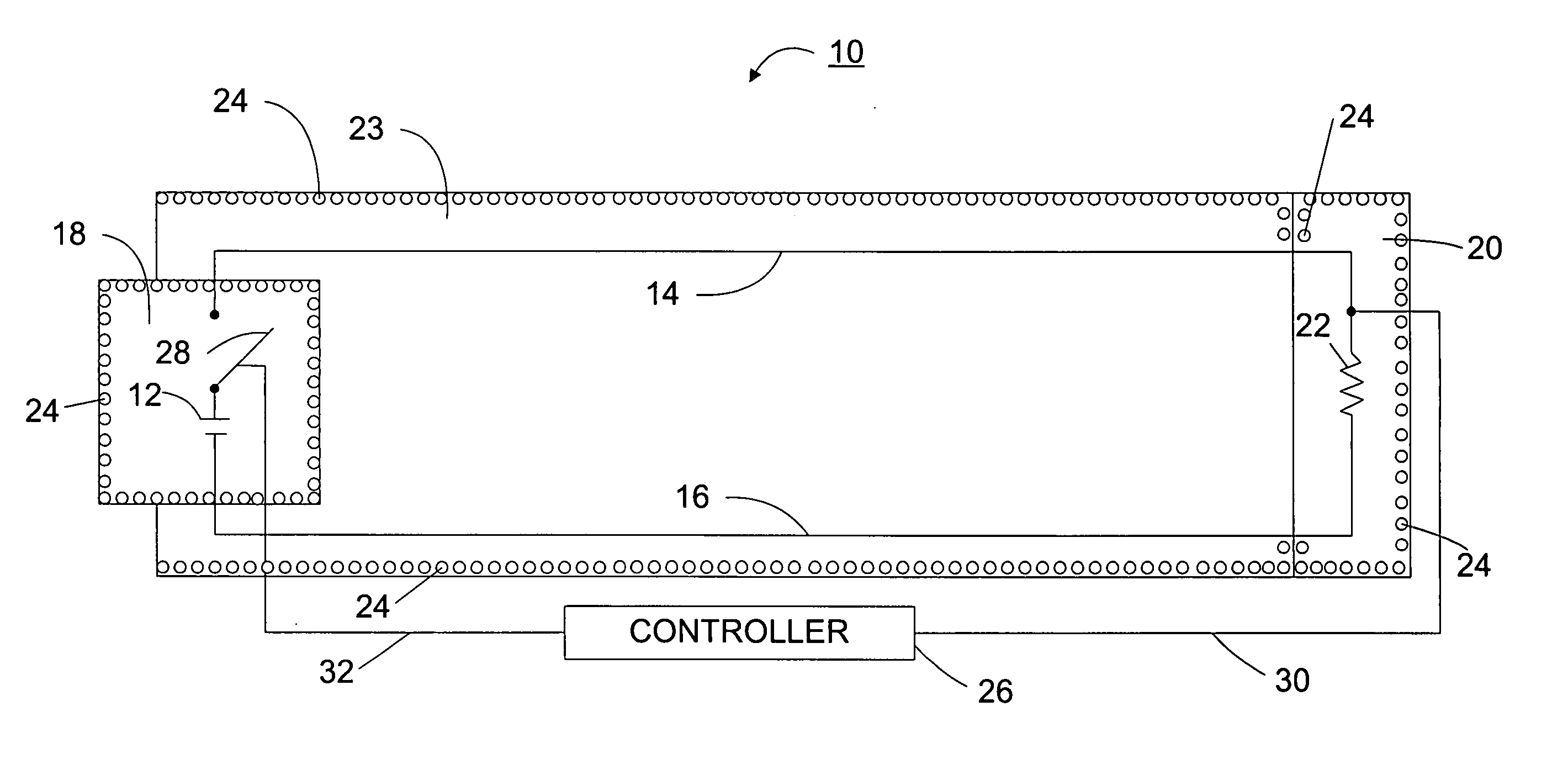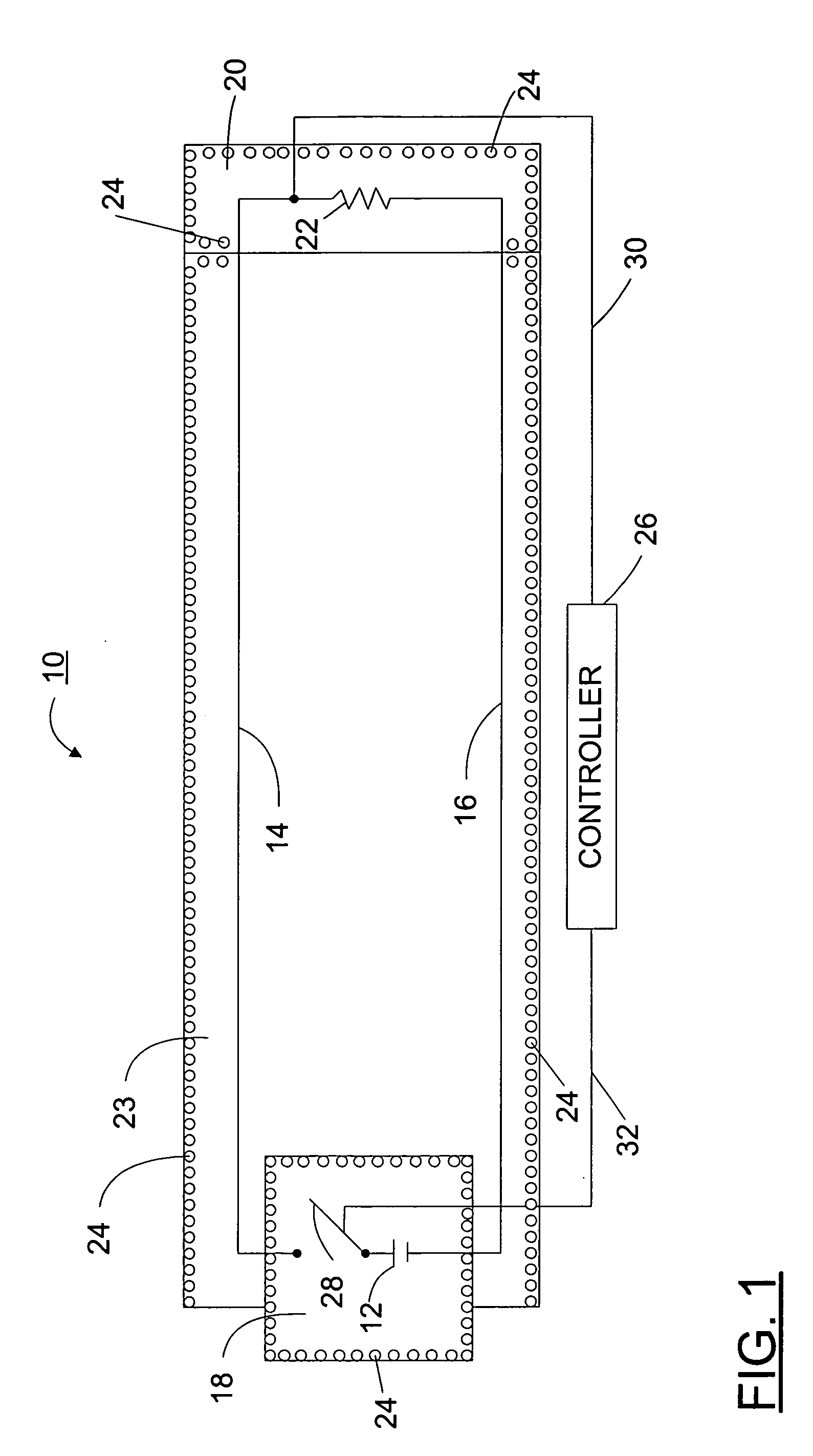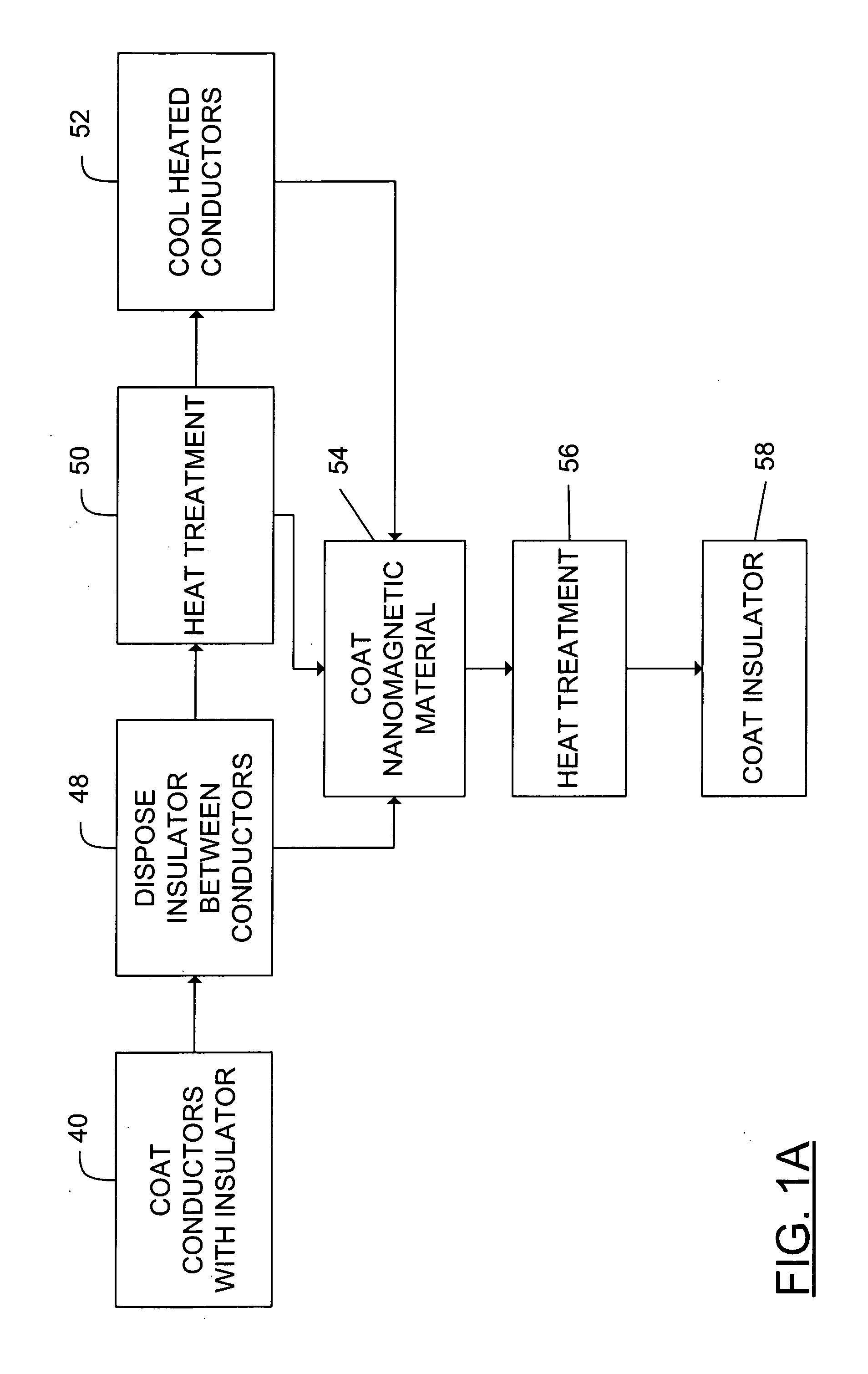Process for coating a substrate
a substrate and coating technology, applied in the field of coating a substrate, can solve the problems of presenting its own problems, not being suitable for use, and potentially deadly hazards to the organism,
- Summary
- Abstract
- Description
- Claims
- Application Information
AI Technical Summary
Problems solved by technology
Method used
Image
Examples
Embodiment Construction
[0071]FIG. 1 is a schematic sectional view of one device 10 that is implanted in a living biological organism (not shown). Device 10 is comprised of a power source 12, a first conductor 14, a second conductor 16, a first insulative shield 18 disposed about power source 12, a second insulative shield 20 disposed about a load 22, a third insulative shield 23 disposed about a first conductor 14, and a second conductor 16, and a multiplicity of nanomagnetic particles 24 disposed on said first insulative shield 18 said second insulative shield 20, and said third insulative shield 23.
[0072] In one embodiment, the device 10 is a an implantable device used to monitor and maintain at least one physiologic function that is capable of operating in the presence of damaging electromagnetic interference; see, e.g., U.S. published patent application 2002 / 0038135, the entire disclosure of which is hereby incorporated by reference into this specification.
[0073] In one aspect of this embodiment, th...
PUM
| Property | Measurement | Unit |
|---|---|---|
| temperature | aaaaa | aaaaa |
| particle size | aaaaa | aaaaa |
| temperature | aaaaa | aaaaa |
Abstract
Description
Claims
Application Information
 Login to View More
Login to View More - R&D
- Intellectual Property
- Life Sciences
- Materials
- Tech Scout
- Unparalleled Data Quality
- Higher Quality Content
- 60% Fewer Hallucinations
Browse by: Latest US Patents, China's latest patents, Technical Efficacy Thesaurus, Application Domain, Technology Topic, Popular Technical Reports.
© 2025 PatSnap. All rights reserved.Legal|Privacy policy|Modern Slavery Act Transparency Statement|Sitemap|About US| Contact US: help@patsnap.com



